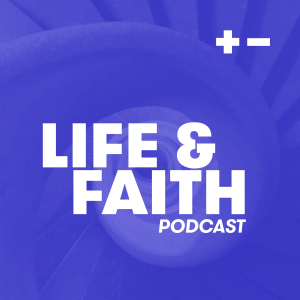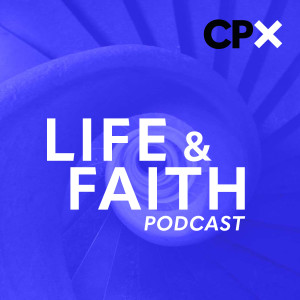
An exploration of the role of emotional, social, and especially spiritual care in modern medicine.
---
“Physical and psychological disruption have obvious spiritual consequences, and spiritual disruption has physical consequences. One of the things we know is that when people feel hopeless, their physical well-being suffers. So if hope is connected to spirituality, then spirituality is connected to medicine – that seems obvious to me.”
The Reverend Doctor Andrew Sloane is a theology lecturer in Sydney. As a former doctor, he’s spent a lot of time studying how the Christian faith intersects with the practice of medicine. In 2016, he published a book on this very subject, titled Vulnerability and Care: Christian Reflections on the Philosophy of Medicine. It looks at questions like, “How important is it for doctors to practice medicine holistically?”, “What is the place of spirituality in healthcare?”, “How can morality be incorporated into medical curricula?”, and even, “What is medicine all about anyway?” – a question to which he gives a rather surprising answer.
This week on Life & Faith is our 300th episode, and it’s produced by our inaugural youth podcast competition winner, Shaddy Hanna. Shaddy is a fourth-year medical student from the University of New South Wales, and his pitch was all about identity, spirituality, and holistic medicine. He’s worked with the team to research and shape this episode, in which he chats with Andrew Sloane about why medicine is fundamentally about caring for the vulnerable, and how a focus on measurable health outcomes often has the effect of devaluing the emotional and spiritual dimensions to health.
“I think it’s very important that we never think that only the things that can be measured count. We often think that if it can’t be counted then it doesn’t count – and that’s just wrong. Most of the things that matter most to us, in fact, are things that can’t be counted or measured – things like love, and relationships, and a sense that our life has made some kind of contribution to the world, that it’s been a valuable thing all in all.”
We also hear from a GP from the Central Coast of New South Wales who has spent the best part of the last decade working in hospitals, clinics, and community health programs across Africa – most recently, in a refugee camp in South Sudan. She thinks Australian doctors have some things to learn from the developing world about how to care for a patient holistically.
“We really need to give thanks for Western medicine and how we can do great things to improve people’s health - but we also need to learn from those in the developing world context who are more accepting of death as part of the cycle of life. When someone’s really close to death, maybe we just need to pay more attention to the emotional and spiritual side of things rather than trying to fix or prevent death happening.”
Join us for this important conversation about the goals and practice of healthcare in Australia and overseas, and what, if anything, modern medicine can learn from the life of Jesus.
---
SUBSCRIBE to Life & Faith on Apple Podcasts: http://bit.ly/cpxpodcast
OR on Spotify: http://cpx.video/spotify
FIND US on Facebook: www.facebook.com/publicchristianity
FOLLOW US on Twitter: www.twitter.com/cpx_tweet
More Episodes
 2012-01-16
2012-01-16
 78
78
 2012-01-09
2012-01-09
 176
176
 2011-10-24
2011-10-24
 1.4k
1.4k
 2011-10-12
2011-10-12
 946
946
 2011-08-23
2011-08-23
 2.1k
2.1k
 2011-05-17
2011-05-17
 469
469
 2010-10-21
2010-10-21
 2.4k
2.4k
 2010-09-06
2010-09-06
 1.7k
1.7k
 2010-08-20
2010-08-20
 3.6k
3.6k
 2010-05-26
2010-05-26
 2.2k
2.2k
 2010-03-31
2010-03-31
 1.5k
1.5k
 2010-03-23
2010-03-23
 2.5k
2.5k
 2010-02-08
2010-02-08
 3.0k
3.0k
 2010-02-03
2010-02-03
 1.4k
1.4k
 2010-01-27
2010-01-27
 1.2k
1.2k
 2010-01-20
2010-01-20
 410
410
 2009-12-17
2009-12-17
 193
193
 2009-12-09
2009-12-09
 543
543
Create your
podcast in
minutes
- Full-featured podcast site
- Unlimited storage and bandwidth
- Comprehensive podcast stats
- Distribute to Apple Podcasts, Spotify, and more
- Make money with your podcast
It is Free
- Privacy Policy
- Cookie Policy
- Terms of Use
- Consent Preferences
- Copyright © 2015-2024 Podbean.com




